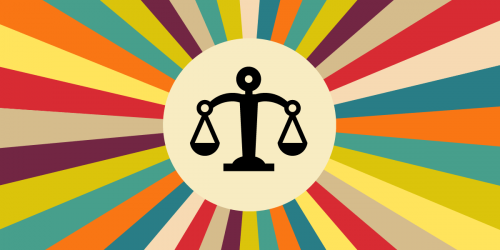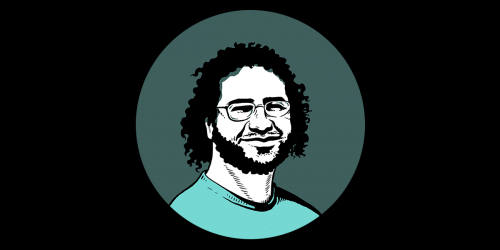
10:00 a.m.: In closing the hearing, Sen. Dan Sullivan speaks passionately about the need for the Department of Justice to invest more resources in prosecuting sex traffickers. Ms. Slater of the Internet Assocation echoes Sen. Sullivan, arguing that the Justice Department should have more resources to prosecute sex trafficking cases.
We could not agree more. Creating more liability for web platforms is, at best, a distraction. Experts in trafficking argue that, at worst, SESTA would do more harm than good.
Freedom Network USA, the largest network of anti-trafficking advocate organizations in the country, expresses grave concerns about lawmakers unwittingly compromising the very tools law enforcement needs to find traffickers (PDF): "Internet sites provide a digital footprint that law enforcement can use to investigate trafficking into the sex trade, and to locate trafficking victims. When websites are shut down, the sex trade is pushed underground and sex trafficking victims are forced into even more dangerous circumstances."
Thank you for following our live blog. Please take a moment to write to your members of Congress and ask them to defend the online communities that matter to you.
____
9:37 a.m.: "We have tried to listen to the industry," Sen. Blumenthal claims. But listening to major Internet industry players is not enough. It's essential that lawmakers talk to the marginalized communities that would be silenced under SESTA. It's essential that lawmakers talk to community-based or nonprofit platforms that will be most hurt by the increased liability, platforms like Wikipedia and the Internet Archive. In a letter to the Committee, the Wikimedia Foundation says point blank that Wikipedia would not exist without Section 230.
In writing off small startups as "outliers," Blumenthal misunderstands something essential about the Internet, that any platform can compete. Liability protections in Section 230 have led to the explosion of successful Internet businesses. Blumenthal claims that SESTA will "raise the bar" in encouraging web platforms to adopt better measures for filtering content, but he's mistaken. The developments in content filtering that SESTA's proponents celebrate would not have taken place without the protections in Section 230.
There is no such thing as a perfect filter. Under SESTA, platforms would have little choice but to rely far too heavily on filters, clamping down on legitimate speech in the process.
____
9:24 a.m.: Prof. Goldman argues that adding enforcement of state criminal law as an exception to Section 230 would effectively balkanize the Internet. One state would have the ability to affect the entire Internet, so long as it can convince a judge that a state law targets sex trafficking. Goldman has written extensively on the problems that would arise from excluding state law from 230 immunity.
____
9:09 a.m.: The committee's discussion about expanding federal criminal law liability for "facilitating" sex trafficking (by amending 18 USC 1591) misses an important point: under SESTA, platforms would be liable not if they knew sex trafficking was happening on their sites, but if they should have known (this is the "reckless disregard" standard set in 1591).
____
9:00 a.m.: Xavier Becerra is correct that Section 230 blocks state criminal prosecutions against platforms for illegal user-generated content (but not federal prosecutions). However, state prosecutors are not prevented from going after the traffickers themselves. As California AG, he should do that.
In Kiersten DiAngelo's letter to the Commerce Committee, she discusses her organization's exasperation at trying to work with California law enforcement to prosecute traffickers. That should be an Attorney General's first priority, not prosecuting web platforms that don't break the law themselves.
____
8:55 a.m.: Yiota Souras from NCMEC says that there should be a legal barrier to enter the online ads marketplace. There already is one: Congress passed the SAVE Act in 2015 to create express liability for platforms that knowingly advertise sex trafficking ads.
Souras says that there needs to be more community intervention into the lives of children before they end up in online sex ads. We couldn't agree more.
____
8:40 a.m.: When Abigail Slater of the Internet Association speaks to platforms' ability to filter content related to trafficking, she's talking about large web companies. Smaller platforms would be most at risk under SESTA: it would be very difficult for them to absorb the huge increase in legal exposure for user-generated content that SESTA would create.
____
8:32 a.m.: Yiota Souras is confusing the issue. Victims of sex trafficking today can hold a platform liable in civil court for ads their traffickers posted when there is evidence that the platform had a direct hand in creating the illegal content. And victims can directly sue their traffickers without bumping into Section 230.
____
8:25 a.m.: Professor Eric Goldman is now testifying on the importance of Section 230:
SESTA would reinstate the moderation dilemma that Section 230 eliminated. Because of Section 230, online services today voluntarily take many steps to suppress socially harmful content (including false and malicious content, sexual material, and other lawful but unwanted content) without fearing liability for whatever they miss. Post-SESTA, some services will conclude that they cannot achieve this high level of accuracy, or that moderation procedures would make it impossible to serve their community. In those cases, the services will reduce or eliminate their current moderation efforts.
Proponents of SESTA have tried to get around this dilemma by overstating the effectiveness of automated content filtering. In doing so, they really miss the point of filtering technologies. Automated filters can be very useful as an aid to human review, but they're not appropriate as the final arbiters of free expression online. Over-reliance on them will almost certainly result in silencing marginalized voices, including those of trafficking victims themselves.
____
8:15 a.m.: Contrary to what Xavier Becerra suggested, we're not opposed to amending statutes in general. But Section 230 has included a reasonable policy balance, enabling culpable platforms to held liable while allowing free speech and innovation to thrive online. Amending it is unnecessary and dangerous.
____
8:12 a.m.: Ms. Yvonne Ambrose, the mother of a trafficking victim, is now speaking on the horrors her daughter went through.
It's specifically because of the horror of trafficking that Congress must be wary of bills that would do more harm than good. To quote anti-trafficking advocate (and herself a trafficking victim) Kristen DiAngelo (PDF), "SESTA would do nothing to decrease sex trafficking; in fact, it would have the opposite effect. [...] When trafficking victims are pushed off of online platforms and onto the streets, we become invisible to the outside world as well as to law enforcement, thus putting us in more danger of violence."
In DiAngelo's letter, she tells the horrific story of a trafficking victim who was forced by her pimp to work the street when the FBI shut down a website where sex workers advertised:
Since she was new to the street, sexual predators considered her fair game. Her first night out, she was robbed and raped at gunpoint, and when she returned to the hotel room without her money, her pimp beat her. Over the next seven months, she was arrested seven times for loitering with the intent to commit prostitution and once for prostitution, all while she was being trafficked.
Freedom Network USA, the largest network of anti-trafficking service providers in the country, expresses grave concerns about any proposal that would shift more liability to web platforms (PDF): "The current legal framework encourages websites to report cases of possible trafficking to law enforcement. Responsible website administrators can, and do, provide important data and information to support criminal investigations. Reforming the CDA to include the threat of civil litigation could deter responsible website administrators from trying to identify and report trafficking.
____
8:05 a.m.: Sen. Wyden is right. Sec. 230 made the Internet a platform for free speech. It should remain intact.
Wyden makes it clear that by design, Section 230 does nothing to protect web platforms from prosecution for violations of federal criminal law. It also does nothing to shield platforms' users themselves from liability for their own actions in either state or federal court. Wyden speaks passionately on the need for resources to fight sex traffickers online. Reminder: SESTA would do nothing to fight traffickers.
____
7:57 a.m.: Sen. Blumenthal is wrong. Section 230 does not provide blanket immunity to platforms for civil claims. Platforms that have a direct hand in posting illegal sex trafficking ads can be held liable in civil court.
SESTA is not narrowly targeted. It would open up online platforms to a "deluge" (Sen. Blumenthal's words) of state criminal prosecutions and federal and state civil claims based on user-generated content.
____
7:45 a.m.: Sen. Nelson asks: why aren't we doing everything we can to fight sex trafficking?
We agree. That's why it's such a shame that Congress is putting its energy into enacting a measure that would not fight sex traffickers. In her letter to the Committee, anti-trafficking advocate (and herself a trafficking victim) Kristen DiAngelo outlines several proposals that Congress could take to fight trafficking: for example, enacting protective measures to make it easier for sex workers to report traffickers.
Undermining Section 230 is not the right response. It's a political bait-and-switch.
____
7:33 am: The hearing is beginning now. You can watch it at the Commerce Committee website.
____
There’s a bill in Congress that would be a disaster for free speech online. The Senate Committee on Commerce, Science, and Transportation is holding a hearing on that bill, and we’ll be blogging about it as it happens.
The Stop Enabling Sex Traffickers Act (SESTA) might sound virtuous, but it’s the wrong solution to a serious problem. The authors of SESTA say it’s designed to fight sex trafficking, but the bill wouldn’t punish traffickers. What it would do is threaten legitimate online speech.
Join us at 7:30 a.m. Pacific time (10:30 Eastern) on Tuesday, right here and on the @EFFLive Twitter account. We’ll let you know how to watch the hearing, and we’ll share our thoughts on it as it happens. In the meantime, please take a moment to tell your members of Congress to Stop SESTA.









